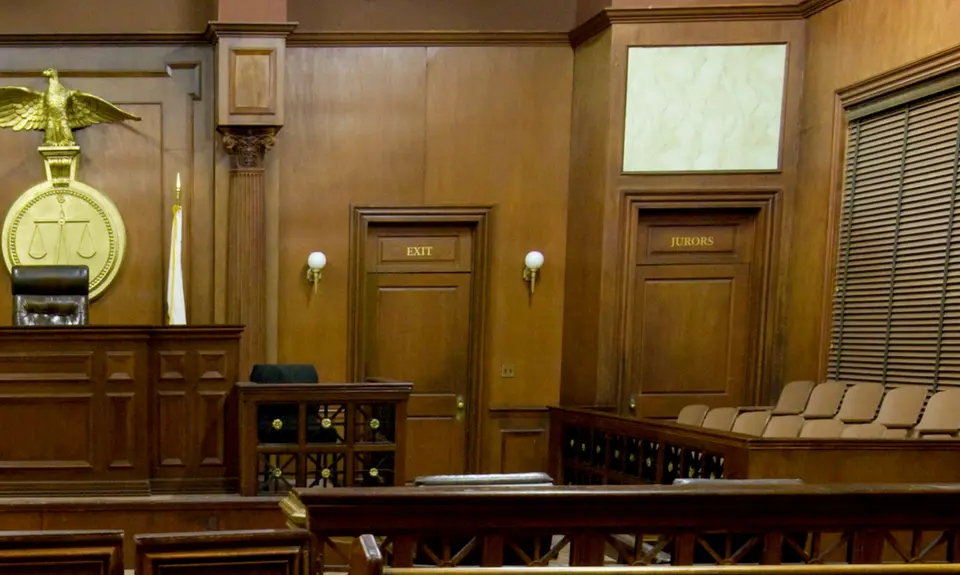“Confirmed Judges, Confirmed Fears” is a blog series documenting the harmful impact of President Trump’s judges on Americans’ rights and liberties. Cases in the series can be found by issue and by judge at this link.
Trump Second Circuit judges Richard Sullivan and William Nardini affirmed the dismissal without discovery of a class action on behalf of African Americans who contended that they were discriminated against because job offers to them were withdrawn because of past felony convictions, a criterion that inevitably disqualifies a disproportionate number of African-American applicants. The September 2020 decision was in Mandala v. NTT Data, Inc.
George Mandala and Charles Barnett are African American men who applied for positions with NTT Data, Inc., a global information technology services provider. Both were clearly qualified and received offers of employment in two different parts of the US. The offers to both were withdrawn, however, when background checks showed that each had a felony conviction. Each was told the action was pursuant to a blanket company “policy not to hire persons with felonies on their records.” Neither was given an opportunity to explain the circumstances and there was no consideration of what the offenses were, how long ago they occurred, any evidence of rehabilitation, or whether they had any relationship to the jobs the men were hired for.
Several months later, Mandala and Barnett filed a lawsuit against NTT on behalf of themselves and all other African American applicants for NTT jobs, contending that the blanket exclusion policy has a disproportionate and discriminatory effect on African Americans and therefore violates federal anti-discrimination law. Since discovery had not begun they did not have access to any NTT records, but the complaint referred to numerous national studies showing that “African-Americans are arrested and incarcerated for crimes at higher rates than [w]hites, relative to their share of national population.”
About a year after the complaint was filed, without allowing any discovery, the district court dismissed the complaint. It ruled as a matter of law that the national statistics that Mandala and Barnett relied upon in their complaint were “inadequate” to show that NTT’s policy had an illegal disparate impact on applicants for its jobs. Mandala and Barnett appealed.
In a 2-1 decision by Trump judge Sullivan, which was joined by Trump judge Nardini, the Second Circuit affirmed. Sullivan agreed that proof that the policy had a disparate impact on African Americans could prove a violation of federal anti-discrimination law. He maintained that the “fact that such a disparity exists among the general population,” however, does not necessarily mean that “it exists among the pool of applicants qualified for the jobs in question,” so that the complaint has “no allegation plausibly suggesting” that the policy “has a disparate impact on African-Americans within the relevant hiring pool.”
Judge Denny Chin strongly dissented. He pointed out that particularly before there has been discovery and the plaintiffs have access to information from the company being sued, the courts have made clear that national statistical evidence can be used to allege disparate impact and that there is “no requirement” that such a showing “must always be based on analysis of the characteristics of actual applicants.” National statistics were particularly relevant in this case, Chin continued, since the complaint alleged that the policy affected “different jobs” in different parts of the country. Chin pointed to more than half a dozen cases around the country where other district courts “relied on national statistics in denying motions to dismiss” complaints that charged that criminal background checks have a “disparate impact based on race.” The complaint in this case also properly raised concerns about the blanket nature of NTT’s policy and its refusal to even consider individual circumstances, Chin wrote, such as the fact that Barnett had obtained a computer science degree and had worked for four years doing information technology and related work for the state of Kentucky, both “after his conviction.” It “may turn out” after discovery that national statistics alone are not enough for the case to proceed, Chin noted, but the plaintiffs’ complaint was “certainly plausible” at this early stage of the case.
Chin concluded by explaining that the EEOC and many others have recognized that “criminal history screens can have a substantial adverse disparate impact based on race,” and that the complaint indicates that Mandal and Barnett are “vivid examples” of that problem. Chin quoted an earlier decision of a different court of appeals:
"We cannot conceive of any business necessity that would automatically place every individual convicted of any offense, except a minor traffic offense, in the permanent ranks of the unemployed. This is particularly true for blacks who have suffered and still suffer from the burdens of discrimination in our society. To deny job opportunities to these individuals because of some conduct which may be remote in time or does not significantly bear upon the particular job requirements is an unnecessarily harsh and unjust burden.".
“These observations,” Chin wrote, “still hold true today." As a result of the decision by Trump judges Sullivan and Nardini, however, Mandala and Barnett, and the class of African Americans they seek to represent, will not even have the opportunity to prove those contentions against NTT.
